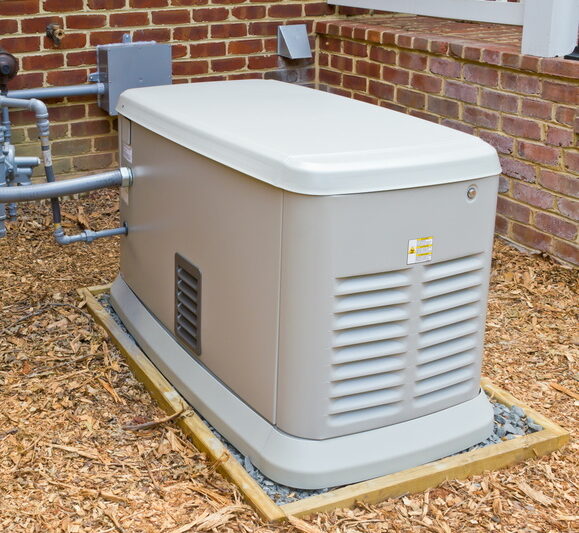In today’s world, where power outages can disrupt daily life, having a reliable backup power source is essential. Home generators offer peace of mind by ensuring that essential appliances and systems continue to operate during blackouts. This guide delves into the workings of generators, their benefits, types, maintenance needs, and installation costs, helping you make informed decisions about securing your home’s power supply.
1. How Generators Work
Generators do not store energy as many mistakenly think, they generate electricity by transforming mechanical energy into electrical energy. It basically works by means of a wire moving through a magnetic field, in this way it produces electricity.
The main parts of a generator are:
- Engine: Powers the generator.
- Alternator: Generates electricity from the movement of the engine.
- Fuel System: Feeds the engine with fuel (such as gasoline or propane).
- Voltage Regulator: Keeps the flow of electricity at a safe and stable level.
- Cooling and Exhaust Systems: Prevents overheating and removes gases.
- Lubrication System: Keeps the parts moving smoothly.
- Battery Charger: Keeps the starting battery ready for use.
- Control Panel: Allows you to manage and monitor the generator.
Knowing the function of each part can help you choose the right generator and also know how to take better care of it if a problem arises. (If you wish to learn more about this topic, please see our page “How generators work“).
2. Why Install a Home Backup Generator?
Installing a home backup generator offers numerous benefits:
- Uninterrupted power supply: Keeps critical systems such as refrigeration, heating, and medical equipment operational during outages.
- Safety and Security: Maintains lighting and security systems to discourage possible threats.
- Comfort: Ensures that heating and cooling systems continue to work, resulting in interior comfort.
- Property Value: Increases property value since generators are desired amenities for prospective purchasers.
- Peace of Mind: Provides a consistent power supply, reducing worry during crises.
A backup generator is an excellent investment, particularly in areas prone to severe weather or unstable power infrastructures.
3. Portable vs. Standing Generators: Which Does It Suit You?
Between the two types of home generators, a decision will be made according to your needs:
| Portable Generators | Standby Generators |
| Pros: | Pros: |
| – Lower cost and more flexible | – Turn on automatically during outages |
| – Can power a few key appliances | – Can power the entire house |
| – Easy to store and move | – Connected to home’s natural gas or propane supply |
| Cons: | Cons: |
| – Must be set up and fueled manually | – Higher upfront cost |
| – Limited power output | – Requires professional installation |
| – Not ideal for long outages |
Especially for owners who want uninterrupted power, the standby generators fit in great for their seamless power continuity.
4. Do Backup Generators Need Maintenance?
Fuel for any generator maintenance is accordingly heading toward the reliability and longevity of the unit:
- Random Check: Check leaks and oil level, and keep the battery in good condition.
- Oil Change and Filter Change: Change oil and filter as per instructions.
- Load Testing: Conduct intermediate load tests to check if the generator can sit and take the load it is supposed to.
- Professional Services: Take the generator for professional service at least once a year to tackle any impending issue.
Without any maintenance, the generator will be caught off guard.
5. How Much Does It Cost to Install a Generac Generator?
The installation price varies depending on several factors. Here are some of the main ones:
- Generator Size: Larger units with more power cost more.
- Installation Complexity: Installation prices can vary depending on location, existing electrical infrastructure, and fuel supply.
- Relevant Permitting and Inspection: Permitting requirements can vary by location, which will increase the installation cost.
Cost Estimate: $2,000 to $5,000: Generator Unit
Installation: $3,000 to $9,000 (if you need more information on this topic, visit our blog post on “How much to install a generator“).
On average, the total cost of the product with installation ranges from $5,000 to $14,000. And we always recommend getting quotes from certified installers. For this and other reasons, CasPro is here to help you get an estimate according to your home’s needs.
How Would I Work With CAS Pro?
Contact CasPro today! We offer consulting, installation, maintenance of home generators and much more! Our team ensures that you get reliable solutions tailored to your particular needs. Visit our website for more information and to schedule an appointment.





